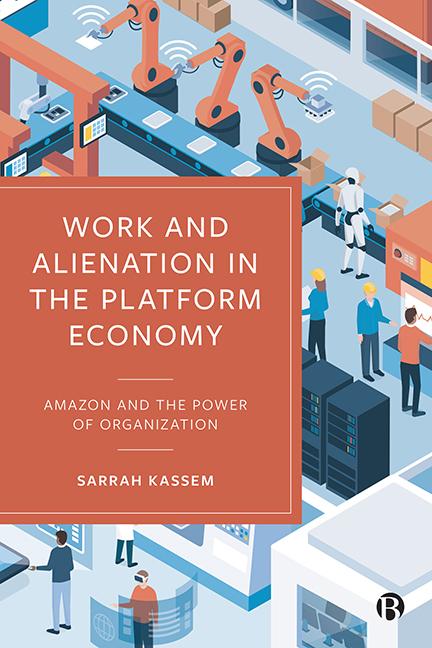8 - “Artificial Artificial Intelligence”: Gigging on Amazon Mechanical Turk
Published online by Cambridge University Press: 18 January 2024
Summary
“I can work when I want
and not work when I want.”
MTurk workerAs a second-generation platform, MTurk exemplifies how capitalism continues to evolve. While all platforms assume, regardless of their nature, the digital dimension of the Internet to mediate, web-based platforms additionally instrumentalize this infrastructure to organize and mediate all the capital–labor relations. In stark contrast to warehouse workers, MTurk workers are organized on a web-based platform to complete piecework, which is increasingly normalized and reproduced beyond the platform economy. They share in that regard the nature of the work with the larger gig economy, which I return to in Chapter 10. As “technology has the potential to be leveraged by capital to capture and alienate labour power in quite novel ways” (Bergvall-Kareborn and Howcroft, 2014: 221), I now investigate how MTurk systematically alienates workers. These labor atomistically without ever encountering either capital that employs them or other workers on MTurk’s Application Programming Interface (API).
Alienation from the labor activity
To study this fundamental relation of alienation, it is important to begin with the triangular relationship between Amazon, requesters and workers (Figure 8.1). While requesters and workers access MTurk through two different interfaces (one for posting tasks and one for laboring), their relationship is facilitated by accepting MTurk’s “Participation Agreement”, which functions like a contractual agreement.
In a seemingly contradictory manner, MTurk extracts itself from capital–labor relations yet lays out its terms, which is characteristic of the platform economy. Amazon presents itself as merely facilitating the exchange of labor through its infrastructure, for which it receives 20 percent commission and an additional 20 percent for tasks requiring more than ten workers. As the infrastructure provider, labor mediator and financial intermediator with the power to cancel accounts and deprive workers of wages, Amazon removes itself from extending rights to workers or any legal disputes. Instead, it classifies workers who do “work made for hire” as independent contractors, “not as an employee of a Requester or Amazon Mechanical Turk or our affiliates” despite referring to them as “Workers” in its requesters guide (Amazon Mechanical Turk, 2020).
- Type
- Chapter
- Information
- Work and Alienation in the Platform EconomyAmazon and the Power of Organization, pp. 104 - 117Publisher: Bristol University PressPrint publication year: 2023



